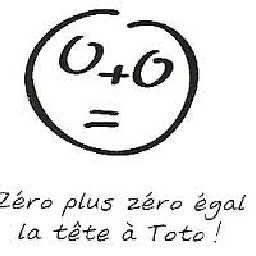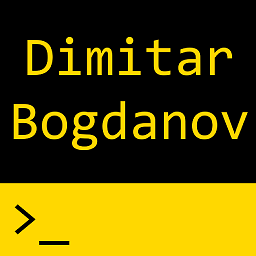Regex to match only letters
Solution 1
Use a character set: [a-zA-Z] matches one letter from A–Z in lowercase and uppercase. [a-zA-Z]+ matches one or more letters and ^[a-zA-Z]+$ matches only strings that consist of one or more letters only (^ and $ mark the begin and end of a string respectively).
If you want to match other letters than A–Z, you can either add them to the character set: [a-zA-ZäöüßÄÖÜ]. Or you use predefined character classes like the Unicode character property class \p{L} that describes the Unicode characters that are letters.
Solution 2
\p{L} matches anything that is a Unicode letter if you're interested in alphabets beyond the Latin one
Solution 3
Depending on your meaning of "character":
[A-Za-z]- all letters (uppercase and lowercase)
[^0-9]- all non-digit characters
Solution 4
The closest option available is
[\u\l]+
which matches a sequence of uppercase and lowercase letters. However, it is not supported by all editors/languages, so it is probably safer to use
[a-zA-Z]+
as other users suggest
Solution 5
You would use
/[a-z]/gi
[]--checks for any characters between given inputs
a-z---covers the entire alphabet
g-----globally throughout the whole string
i-----getting upper and lowercase
Nike
Updated on July 08, 2022Comments
-
 Nike 6 months
Nike 6 monthsHow can I write a regex that matches only letters?
-
 Philip Potter over 12 yearsnot in all regex flavours. For example, vim regexes treat
Philip Potter over 12 yearsnot in all regex flavours. For example, vim regexes treat\pas "Printable character". -
 Joachim Sauer over 12 yearsThat's a very ASCII-centric solution. This will break on pretty much any non-english text.
Joachim Sauer over 12 yearsThat's a very ASCII-centric solution. This will break on pretty much any non-english text. -
 Philip Potter over 12 yearsthis page suggests only java, .net, perl, jgsoft, XML and XPath regexes support \p{L}. But major omissions: python and ruby (though python has the regex module).
Philip Potter over 12 yearsthis page suggests only java, .net, perl, jgsoft, XML and XPath regexes support \p{L}. But major omissions: python and ruby (though python has the regex module). -
 Gumbo over 12 years@Joachim Sauer: It will rather break on languages using non-latin characters.
Gumbo over 12 years@Joachim Sauer: It will rather break on languages using non-latin characters. -
 Nike over 12 yearsI meant lettters. It doesn't appear to be working though. preg_match('/[a-zA-Z]+/', $name);
Nike over 12 yearsI meant lettters. It doesn't appear to be working though. preg_match('/[a-zA-Z]+/', $name); -
 Ivo Wetzel over 12 yearsAlready breaks on 90% of German text, don't even mention French or Spanish. Italian might still do pretty well though.
Ivo Wetzel over 12 yearsAlready breaks on 90% of German text, don't even mention French or Spanish. Italian might still do pretty well though. -
 Joachim Sauer over 12 yearsthat depends on what definition of "latin character" you choose. J, U, Ö, Ä can all be argued to be latin characters or not, based on your definition. But they are all used in languages that use the "latin alphabet" for writing.
Joachim Sauer over 12 yearsthat depends on what definition of "latin character" you choose. J, U, Ö, Ä can all be argued to be latin characters or not, based on your definition. But they are all used in languages that use the "latin alphabet" for writing. -
 KristofMols over 12 years[A-Za-z] is just the declaration of characters you can use. You still need to declare howmany times this declaration has to be used: [A-Za-z]{1,2} (to match 1 or 2 letters) or [A-Za-z]{1,*} (to match 1 or more letters)
KristofMols over 12 years[A-Za-z] is just the declaration of characters you can use. You still need to declare howmany times this declaration has to be used: [A-Za-z]{1,2} (to match 1 or 2 letters) or [A-Za-z]{1,*} (to match 1 or more letters) -
 Jörg W Mittag over 12 years@Philip Potter: Ruby supports Unicode character properties using that exact same syntax.
Jörg W Mittag over 12 years@Philip Potter: Ruby supports Unicode character properties using that exact same syntax. -
 Amal Murali over 8 years
Amal Murali over 8 years\wmay not be a good solution in all cases. At least in PCRE,\wcan match other characters as well. Quoting the PHP manual: "A "word" character is any letter or digit or the underscore character, that is, any character which can be part of a Perl "word". The definition of letters and digits is controlled by PCRE's character tables, and may vary if locale-specific matching is taking place. For example, in the "fr" (French) locale, some character codes greater than 128 are used for accented letters, and these are matched by \w.". -
 OGHaza over 8 yearsThat is not what
OGHaza over 8 yearsThat is not what[^\W|\d]means -
 OGHaza over 8 years
OGHaza over 8 years[^\W|\d]means not\Wand not|and not\d. It has the same net effect since|is part of\Wbut the|does not work as you think it does. Even then that means it accepts the_character. You are probably looking for[^\W\d_] -
 Motlab over 8 yearsI agree with you, it accepts the
Motlab over 8 yearsI agree with you, it accepts the_. But "NOT"|is equal than "AND", so[^\W|\d]means : NOT\WAND NOT\d -
 OGHaza over 8 years
OGHaza over 8 years[^ab]means notaand notb.[^a|b]means notaand not|and notb. To give a second example[a|b|c|d]is exactly the same as[abcd|||]which is exactly the same as[abcd|]- all of which equate to([a]|[b]|[c]|[d]|[|])the|is a literal character, not an OR operator. The OR operator is implied between each character in a character class, putting an actual|means you want the class to accept the|(pipe) character. -
 V-SHY over 7 yearswords include other characters from letters
V-SHY over 7 yearswords include other characters from letters -
 Nyerguds over 6 yearsWon't match any special characters though.
Nyerguds over 6 yearsWon't match any special characters though. -
 Eugen Konkov over 6 years
Eugen Konkov over 6 years\wmeans match letters and numbers -
 ZoFreX over 6 yearsI think this should be
ZoFreX over 6 yearsI think this should be\p{L}\p{M}*+to cover letters made up of multiple codepoints, e.g. a letter followed by accent marks. As per regular-expressions.info/unicode.html -
 phuclv over 6 yearswell à, á, ã, Ö, Ä... are letters too, so are অ, আ, ই, ঈ, Є, Ж, З, ﺡ, ﺥ, ﺩא, ב, ג, ש, ת, ... en.wikipedia.org/wiki/Letter_%28alphabet%29
phuclv over 6 yearswell à, á, ã, Ö, Ä... are letters too, so are অ, আ, ই, ঈ, Є, Ж, З, ﺡ, ﺥ, ﺩא, ב, ג, ש, ת, ... en.wikipedia.org/wiki/Letter_%28alphabet%29 -
 Radu Simionescu about 6 years\p{L} matches all the umlauts sedilla accents etc, so you should go with that.
Radu Simionescu about 6 years\p{L} matches all the umlauts sedilla accents etc, so you should go with that. -
 user1329482 about 5 yearsWorks well in a selector engine for determining if the selector is just a tag name.
user1329482 about 5 yearsWorks well in a selector engine for determining if the selector is just a tag name. -
 DaveMongoose almost 5 yearsThis will also match whitespace, symbols, etc. which does not seem to be what the question is asking for.
DaveMongoose almost 5 yearsThis will also match whitespace, symbols, etc. which does not seem to be what the question is asking for. -
 AER almost 5 yearsWhat do you do if you can't use
AER almost 5 yearsWhat do you do if you can't use[]because Python is too thick to understand nestings? -
 The Witness over 4 yearsAnd what about for instance, “Zażółć gęslą jaźń”?
The Witness over 4 yearsAnd what about for instance, “Zażółć gęslą jaźń”? -
 karoluS over 4 yearsit doesn't include diacritic signs such as
karoluS over 4 yearsit doesn't include diacritic signs such asŹŻŚĄ -
 matanster over 3 yearswith python 3 this yields an error
matanster over 3 yearswith python 3 this yields an errorbad escape \p at position 0 -
Pablo over 3 yearsInstead of keep adding characters like adding äöüßÄÖÜ, you can go: ^[a-zA-Z]\p{L}+$ to include most of the western alphabets.
-
 Catalina Chircu about 3 years@phuclv: Indeed, but that depends on the encoding, and the encoding is part of the settings of the program (either the default config or the one declared in a config file of the program). When I worked on different languages, I used to store that in a constant, in a config file.
Catalina Chircu about 3 years@phuclv: Indeed, but that depends on the encoding, and the encoding is part of the settings of the program (either the default config or the one declared in a config file of the program). When I worked on different languages, I used to store that in a constant, in a config file. -
 phuclv about 3 years@CatalinaChircu encoding is absolutely irrelevant here. Encoding is a way to encode a code point in a character set in binary, for example UTF-8 is an encoding for Unicode. Letters OTOH depends on the language, and if one says
phuclv about 3 years@CatalinaChircu encoding is absolutely irrelevant here. Encoding is a way to encode a code point in a character set in binary, for example UTF-8 is an encoding for Unicode. Letters OTOH depends on the language, and if one says[A-Za-z]are letters then the language that's being used must be specified -
 Catalina Chircu about 3 years@phuclv: Indeed, I should have mentioned the language, not the encoding. The language is important and finding the letters in English is not the same as finding the letters in Spanish or French. If you do not take into account the diacritics in these languages you can cut words in two.
Catalina Chircu about 3 years@phuclv: Indeed, I should have mentioned the language, not the encoding. The language is important and finding the letters in English is not the same as finding the letters in Spanish or French. If you do not take into account the diacritics in these languages you can cut words in two. -
 Stefan Haustein about 3 yearsDoesn't work in firefox: bugzilla.mozilla.org/show_bug.cgi?id=1361876
Stefan Haustein about 3 yearsDoesn't work in firefox: bugzilla.mozilla.org/show_bug.cgi?id=1361876 -
 Toto almost 3 yearsYou should have look at an ASCII table.
Toto almost 3 yearsYou should have look at an ASCII table.A-zmatches more than just letters, as well asÀ-ú -
 ndrwnaguib over 2 yearsHello @jarraga. Welcome to SO, did you read how to answer a question?. It should assist the clearance of your answer, and hence avoid down voting.
ndrwnaguib over 2 yearsHello @jarraga. Welcome to SO, did you read how to answer a question?. It should assist the clearance of your answer, and hence avoid down voting. -
 Toto over 2 yearsWhat about non Latin letter? For example
Toto over 2 yearsWhat about non Latin letter? For exampleçéàñ. Your regex is less readable than\p{L} -
 Frederic about 2 yearsClever answer. Works perfectly for accented letters as well.
Frederic about 2 yearsClever answer. Works perfectly for accented letters as well. -
 jave.web almost 2 yearsFor letters beyond english:
jave.web almost 2 yearsFor letters beyond english:/\p{Letter}/guref: developer.mozilla.org/en-US/docs/Web/JavaScript/Guide/… -
 jave.web almost 2 yearsJavaScript needs
jave.web almost 2 yearsJavaScript needsuafter regex to detect the unicode group:/\p{Letter}/gu -
 dimitar.bogdanov over 1 year^ or any Cyrillic letters
dimitar.bogdanov over 1 year^ or any Cyrillic letters -
 Eric Soyke about 1 yearFor a long time I had been using [A-z]+ but just noticed this allows a few special characters like ` and [ to slip in. [a-zA-Z]+ is indeed the way to go.
Eric Soyke about 1 yearFor a long time I had been using [A-z]+ but just noticed this allows a few special characters like ` and [ to slip in. [a-zA-Z]+ is indeed the way to go.